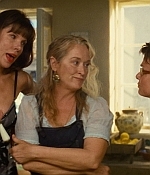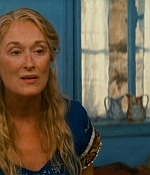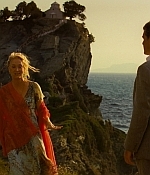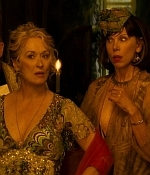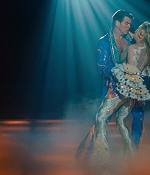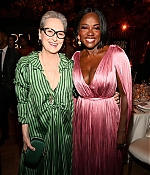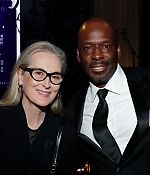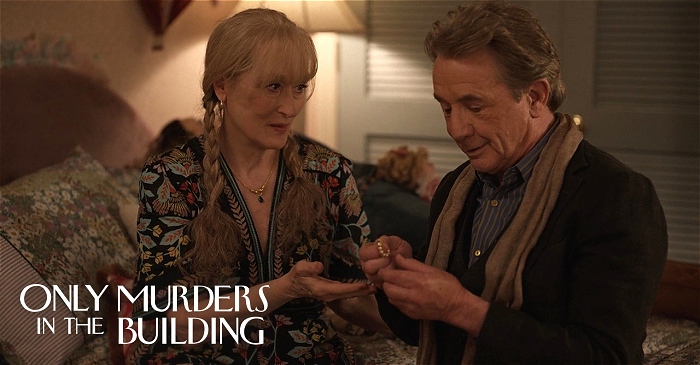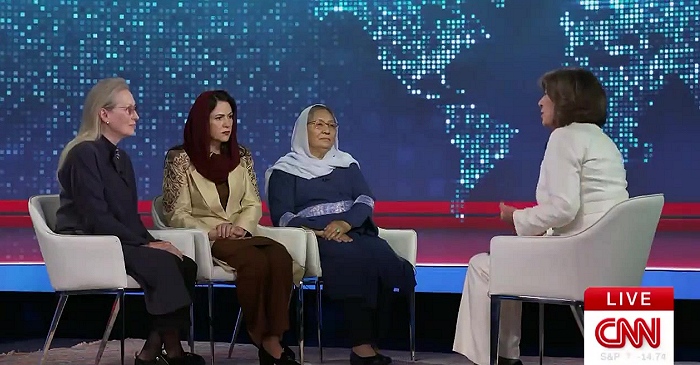
Mamma Mia!
July 10, 2008 (United Kingdom)
· Universal Pictures
· 108 minutes
|
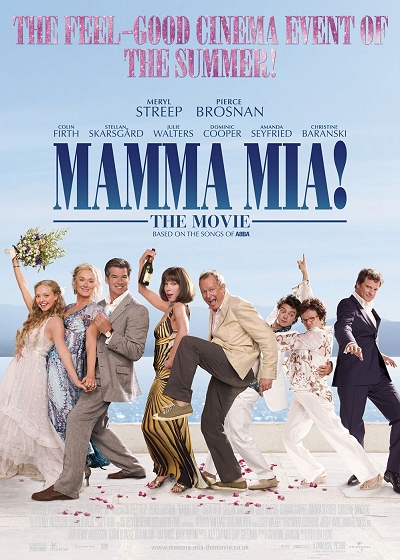
Soon after the musical “Mamma Mia” opened in London, several companies expressed interest in making it into a film. Tom Hanks and Playtone would ultimately become Littlestar’s (Judy Craymer’s company) producing partner for the film. Executive producer Hanks recalls of seeing the show: “By the twelfth minute, I was standing up singing along with the music.” With a working script, Craymer began the search for a director. She persuaded theater and opera director Phyllida Lloyd to join the company, and Lloyd immediately responded to Mamma Mia! Drawn to the songs, the director sums, “This was the musical Benny and Björn didn’t realize they’d written.” Björn Ulvaeus worked closely with Lloyd, Craymer and playwright Catherine Johnson, giving feedback on each new draft.
With an accomplished behind-the-scenes production team, the filmmakers looked to find a cast just as amazing. Cast in the lead role of Donna was Meryl Streep. Mamma Mia! is Streep’s first full-on movie musical. Says Craymer of the production’s choice for Donna: “We had always leant towards Meryl Streep playing the lead character. It was beyond joyful that she said yes to the offer immediately. We knew she had seen the show on Broadway a few years ago, as she’d written a rather wonderful letter to the cast, telling them how much she loved the show and how she’d wanted to get up on stage and feel what it was like to be part of Mamma Mia! Like schoolgirls, we kept this letter.” “We dreamt of asking Meryl to play Donna,” says director Lloyd. “We knew she sang; we knew she wanted to do a musical. She combines everything that is required. She’s one of those unique actors who can laugh the world’s laughs and cry the world’s tears. That’s what Mamma Mia! needed, and we have it in her.”
Everybody was really dimmed spiritually after 9/11. I thought, ‘What am I going to do with the kids?’ So I took all these 10-year-olds to see a matinee of Mamma Mia!. They walked in and they sat there with their heads in their hands. Dimmed is the word – they were sad all the time, you know? The first part was really wordy, and then Dancing Queen started up. And for the rest of the show they were dancing on their chairs and they were so, so happy. We all went out of the theatre floating on the air. I thought, ‘What a gift to New York right now’. I keep getting asked about the scene with the splits [while jumping on the bed]. They ask – was there a body double? Yeah, right! Or was it CGI? Of course! They grafted my face on to Olga Korbut’s body. I just did the splits on instinct. That’s what always happens with my acting. As an actor, you’re not allowed to think. I couldn’t do the splits for you right now. (Meryl Streep, Guardian, July 2008)
Streep had indeed seen the show in New York and recounts, “It was pure joy.” She was drawn to the role for its humanity, its spirit and, of course, the music. “The songs are timeless,” says Streep. “They just enter your body. When I came to learn them, I found I knew every single one. They have amazing hooks and great melodies.” Streep also responded to the fact that women had created Mamma Mia! and this would be a challenging, physical role that demanded a great deal of stamina. Among other moves, she would have to scale the side of a 40-foot building and sing “Mamma Mia” while balancing precariously on a rooftop. Too, she would sing “Dancing Queen” while performing a series of stunts, which included sliding down banisters to jumping off a jetty and into the sea. Says Streep, “I was told that I was going to climb up the goat house wall while singing ‘Mamma Mia.’ I thought, ‘How big could a goat house be?’ The goat house turned out to be this sheer wall. I was basically doing a Spider-Man stunt, and I got in shape really quickly. It was the first week, and I thought, ‘Whew! I better do my exercises every night.’” Cast to play the (un)welcome dads were Pierce Brosnan, Colin Firth and Stellan Skarsgård.
Following several weeks of music and vocal recordings, six weeks of combined costume fittings, make-up tests and dance rehearsals, the shoot began on the newly refurbished 007 Stage at Pinewood in June 2007. The film was finally released theatrically in Summer 2008. Critics were rather mixed – the BBC called it “the closest you get to see A-List actors doing drunken karaoke”, while Empire Magazine called it “clean, camp fun, full of sunshine and toe tappers”. Of the actors, Brosnan was savaged by many for his vocal skills. Financially, however, “Mamma Mia” became a huge hit at the box office – the most successful British-made film of all time, as well as being the highest-grossing film of all time at the UK box office, eclipsing the record previously held by “Titanic”. It received two Golden Globe nominations for Best Picture Comedy and Best Actress in a Musical or Comedy for Meryl Streep.
This might come as a shock to read on a Meryl Streep fansite – but I don’t like “Mamma Mia”. The reason for that is simple, I don’t like muscials, never had an interest in those. Looking beyond this fact and trying to like it anyway, I didn’t succeed in doing so. Clearly, this is a comedy for women to enjoy, just like men get their yearly dose of action flicks and buddy films. But in contrast to those, “Mamma Mia” did not have the luxury of a big budget. It hasn’t hurt the film though, since it remains the most successful in Meryl’s filmography, money-wise. And I’m sure it’ll stay there. But if you don’t like the genre, it feels impossible to enjoy the outrageously over-the-top acting throughout, which, at times, is campy, or the rather simple story. The directing and editing feels like a mess. The one thing you can sense, nevertheless, is that all participants enjoy their job. It has to be said as well that Meryl’s singing is marvelous. And it has been important to her career, proving that “The Devil Wears Prada” and Meryl’s success at the mainstream box-office hasn’t been a one-hit wonder. Also, it shows a side of Meryl that you probably wouldn’t have seen several years ago, maybe because her own interest in film has shifted or there simply wasn’t an opportunity. “Mamma Mia”, on stage and film, has given millions of viewers pure joy and has brought Meryl a whole new generation of fans, so I’m aware that my opinion on the film is a minority.
★ National Movie Award – Best Performance Female
★ People’s Choice Award – Favorite Song from a Soundtrack
★ Irish Film & Television Award – Best International Actress
★ Rembrandt Award (Netherlands) – Best International Actress
★ Women Film Critics Circle Award – Best Comedic Actress
★ Women’s Image Network Award – Outstanding Actress Feature Film
☆ Alliance of Women Film Journalists – Actress Defying Age and Ageism
☆ Golden Globe – Best Performance by an Actress in a Motion Picture (Comedy or Musical)
☆ Cinema Jupiter Award (Germany) – Best International Actress
☆ Golden Satellite Award – Best Actress (Comedy)
☆ People’s Choice Award – Favorite Cast
☆ Movies for Grownups Award – Best Grownup Love Story
☆ Satellite Award – Best Actress in a Motion Picture (Comedy or Musical)

